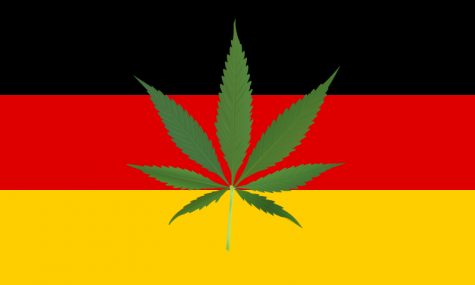Pot pricing disagreements are delaying the launch of Israel’s medical cannabis export industry
Until a resolution is met by Israel’s Ministry of Health and Ministry of Finance, it is uncertain whether or not medical cannabis exports will launch as promised by September
Israel is on the cusp of becoming a global pioneer in cannabis exports, but there’s a spanner in the works. The country’s export process, which was initiated by the Israeli Ministry of Finance back in 2016, is experiencing a slower rollout than first expected.
This is because Israel’s Ministry of Health and Ministry of Finance cannot find common ground in regards to deciding how much money patients should be paying for medical cannabis. Medical cannabis exports were approved by the Israeli government at the start of the year for commencement this September, but the process has been halted by the Israeli Ministry of Public Security. According to the Ministry, more funding is necessary to ensure things run smoothly.
When the country does start exporting the plant in its medicinal form, the industry is estimated to yield somewhere in the range of $70 million to $1 billion on an annual basis.
Medical cannabis prices in Israel capped by Health Ministry
Two-thirds of patients claim that the price of pharmaceutical-grade cannabis has climbed recently; stimulated by the fact that pharmacies are dominating the retail space and cutting into the profits of manufacturers and growers.
Until a resolution is met by Israel’s Ministry of Health and Ministry of Finance, it is uncertain whether or not the September deadline will be met. On the plus side, the health ministry is trying to put a cap on the cost of medical cannabis sold throughout Israel, which has consistently crept up since last year when standardized prices were eliminated and the number of medical cannabis sellers started to swell.
Government-supervised prices have been requested by the Ministry of Health, which recently urged the inter-ministerial pricing committee to treat medical cannabis the same as any other type of drug sold in Israel.
The finance ministry was sent a letter by the health ministry at the end of July, prompting the government to standardize the price of medical cannabis in Israel. The basis of this letter was to inform the ministry that cannabis exports will be prohibited until medical cannabis legalization has been enacted in its entirety throughout Israel. According to the letter, this tactical approach will help to keep local prices down.
50,000 medical cannabis permits have been distributed to Israeli patients
In order to legally obtain and use medicinal-grade cannabis in Israel, patients must first obtain a permit. So far, approximately 50,000 permits have been appointed to eligible patients who meet the criteria for the country’s medical cannabis program. Based on data revealed by the health ministry, more than 2,000 new permits are being distributed amongst patients every single month.
When cannabis is officially exported from Israel, the country is likely to attract plenty of investor interest. While this might seem like a good thing, industry analysts are concerned that medical cannabis exports in Israel will further increase the cost of dispensary products.
At the current time, patients are limited to purchasing medical cannabis from local cultivators. due to the fact imports are not yet allowed. The 50,000 or so medical cannabis patients already registered in Israel are having their demands met by a mere three distributors/manufacturers and only eight cannabis growers.
Since the delay in Israel’s medical cannabis exports has been caused by an inability to decide on a price for pot-based treatments, the inter-ministerial quarrel must be resolved quickly if the country is to boost its economy and open up a new market for cannabis producers by next month.













